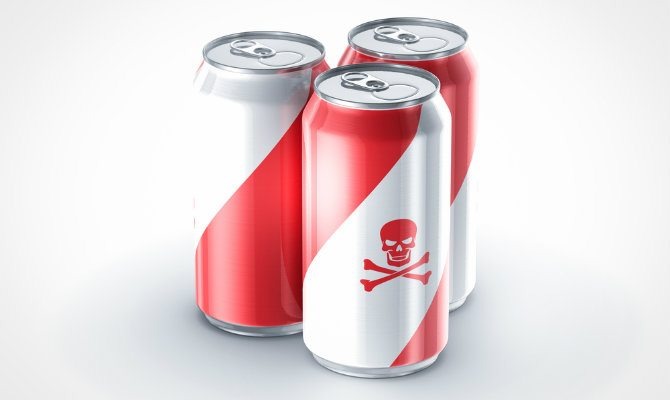How Diet Soda, Soft Drinks, And Energy Drinks Are Slowly Killing Us
Soda, juice, and energy drinks are some of the worst offenders when it comes to your diet, "because of the extremely high sugar content and acidity," explains Dr. Rohit Chandra, child and adult psychiatrist at Massachusetts General Hospital-Chelsea and instructor in psychiatry at Harvard Medical School.
But just how bad are they for you?
"They are toxic to your teeth and leach calcium from your bones in addition to contributing heavily to obesity because of their sugar content. No ifs, ands, or buts: just avoid them."
And the other doctors couldn't agree more. "Soft drinks are liquid candy," confirms Dr. Chris Tolcher, pediatrician and spokesperson for the American Academy of Pediatrics. "Pick eating an apple over drinking apple juice; most of the juices say right there on the bottle 'contains no fruit'!"
And as far as energy drinks go: "Too many stimulants," scolds Dr. Luis Pacheco, family practice and medical director of transitional care at the California Hospital Medical Center. "Some studies [show] that there is increased platelet aggregation along with heart problems [for patients who consume energy drinks]. Caffeine is fine for bodies, but excessive quantities are a problem."
Many people turn to diet sodas to get their carbonation fix, but they are hardly a wise alternative.
"Diet soda is no better than regular soda," according to Dr. Suzanne Steinbaum, a cardiologist with Lenox Hill Hospital in New York City. "The chemicals in it to lead to the metabolic syndrome! No reason to add this one to your diet. A truly unhealthy choice."
"Poison, in my opinion," agrees Dr. Michael Fiorillo, a plastic surgeon in Pearl River, New York.
To be specific, it's the artificial sugars in diet soda that really turn doctors off. "Anything with aspartame — it's true that you are not getting any calories in your diet beverage, but the dangers associated with aspartame may not be worth it," says Santa Monica OB/GYN Sheryl Ross. "This zero-calorie sugar substitute may be linked to headaches, dizziness, digestive problems, mood changes, Alzheimer's disease, multiple sclerosis, and some cancers."
To find out what other foods doctors won't eat, check out our report here!
